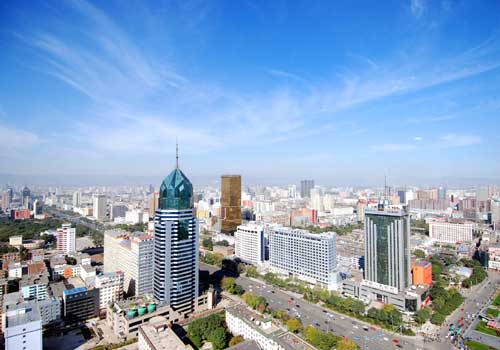"At the time, people dared not go outside wearing light-colored clothes in summer, and in winter people always screwed up their eyes when riding their bicycles. Pollution typified Taiyuan," recalls Liang Mingli, chief of the Bureau of Environmental Protection of Taiyuan, Shanxi Province.
Liang was born in Taiyuan. She recalls how, in her childhood, the sky of Taiyuan was blue and the stars shone visibly. But gradually the stars and the sky disappeared. At first, people thought it was due to the weather – at the time they had no understanding of environmental pollution or environmental protection.
 |
|
The environment in Taiyuan has greatly improved in recent years. Clean water and a once-again blue sky have returned.
|
"Like many other citizens in Taiyuan, I used to get very excited at the sight of volumes of black smoke pouring from chimneys, because from my point of view smoke meant positive economic benefits. In 1971, my dream came true when I became a worker at the Taiyuan electric power plant," says Liang.
"With black smoke and clinker, our working environment was heavily polluted, but no one cared about that because we thought factories should be like this. On the contrary, we were proud of the smoke, which, in our opinion, meant we were making our contribution to the nation," Liang adds.
Liang felt a new stimulation when she heard the words "environmental protection" for the first time. She realized that environmental protection would in some way benefit posterity and work for the well-being of the people, although she had no real understanding of exactly what the phrase meant. Liang made up her mind to devote herself to environmental protection work in Taiyuan.
"In 1980, the year after the Bureau of Environmental Protection was established, there were a total of 18 people in the bureau. At that time, we didn't understand the importance of environmental protection. We had no plans or documents to guide our work. Most of us thought that our daily work was to look after clean-ups – perhaps dealing with waste water, gas and residues at most," she recalls.